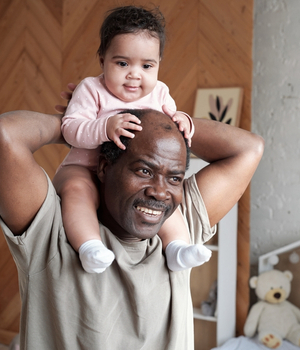30 QTBIPOC Recovery and Mental Health Resources
QTBIPOC Addiction and Mental Health Statistics

Statistics reveal that the QTBIPOC population is at high risk for substance abuse and mental health issues. Yet, the numbers also show that these individuals are less likely to have access to mental health services, less likely to seek treatment, and less likely to receive needed care.
This resource guide is intended to break down these barriers and link QTBIPOC to much-needed support. Following are tools, information, and practical resources to provide assistance and care for QTBIPOC.
Insurance Coverage for Addiction Treatment and Mental Health Care Services
Yes, health insurance can cover recovery and mental health services. But the LGBTQ population is less likely to have health insurance than other individuals. Fortunately, the Affordable Care Act offers benefits that can address these disparities and provide access to care.
Here’s what you need to know:
- You can sign up online for a health plan that fits your budget at healthcare.gov.
- These state marketplaces and health plans are prohibited from discriminating against LGBT individuals.
- All marketplace plans cover substance abuse and mental health services.
- All plans must cover behavioral health treatment (counseling, psychotherapy, etc.).
- All plans must cover mental and behavioral health inpatient services.
- All plans must cover substance use disorder treatment.
- Pre-existing mental and behavioral health conditions are covered.
- Spending limits are not allowed with these plans.
QTBIPOC Finding a Mental Health Provider
Once you have access to care, it’s important to find a mental health provider who suits your needs. The following questions can be helpful to “interview” a provider and determine if they are a good fit.
QUESTIONS AROUND LGBTQ+ INCLUSION
 How would you describe your experience treating clients who share my [insert your LGBTQ identity here i.e. “trans/non-binary”] identity?
How would you describe your experience treating clients who share my [insert your LGBTQ identity here i.e. “trans/non-binary”] identity?- What training/evidence-based treatment do you/your practice have for issues that may arise related to [insert your LGBTQ identity here i.e. “queer”] health and wellness?
- What is your position on so-called “conversion therapy” — attempts to change a client’s sexual orientation, gender identity or gender expression?
- What kind of resources/training do you/your practice have available to remain up-to-date with [insert your LGBTQ identity here i.e. “bisexual”] issues so that I can avoid having to educate my provider as much as possible?
- How would you describe your experience using gender-neutral pronouns?
- How would you describe your knowledge of safety risks and considerations related to my [insert your LGBTQ identity here i.e. “queer”] identity?
- What training/evidence-based treatment do you/your practice have for trauma from rejection around my [insert your LGBTQ identity here i.e. “bisexual”] identity?
- What is your/your practice’s position on the mental health impact of navigating anti-LGBTQ bias and discrimination?
- How would you describe your knowledge of stereotypes and/or common misconceptions of my [insert your LGBTQ identity here i.e. “lesbian”] identity — things that you might say in a session that could result in trauma/microaggression?
QUESTIONS AROUND RACIAL/CULTURAL RESPONSIVENESS
- How would you describe your experience treating clients who share my [insert your racial/cultural identity here i.e. “Indigenous”] identity?
- What is your/your practice’s experience incorporating a racial equity/anti-racist lens into your treatment?
- How would you describe your knowledge of safety risks and considerations related to my [insert your racial/cultural identity here i.e. “Black”] identity?
- What training/evidence-based treatment do you/your practice have for issues that may arise related to [insert your racial/cultural identity here i.e. “Asian”] health and wellness?
- Can you share with me your/your practice’s training/evidence-based treatment for issues that may arise from trauma related to [insert “anti” and your racial/cultural identity here i.e. “anti-Black”] oppression, racism and/or racial violence?
- What kind of resources/training do you/your practice have available to remain up-to-date with [insert your racial/ cultural identity here i.e. “Asian”] issues both locally and nationally so that I can avoid having to educate my provider as much as possible?
- What is your/your practice’s position on the mental health impact of navigating oppression, racism and racial violence?
- What is your/your practice’s position on the impact of generational trauma as it relates to racism/racial violence?
- How would you describe your knowledge of stereotypes and/or common misconceptions of my [insert your racial/cultural identity here i.e. “Latinx”] identity — things that you might say in a session that could result in trauma/microaggression?
QUESTIONS AROUND INTERSECTIONAL LENS
- How do you define intersectionality and how do you plan to utilize an intersectional lens in my treatment?
- How can you help me navigate trauma related to the oppression I have and continue to face related to my [insert your QTBIPOC identity here i.e. “Black trans woman”] identity—understanding there are multiple systems of oppression impacting my mental health concurrently?
- How can you help me navigate trauma related to the oppression I have and continue to face related to my [insert your QTBIPOC identity here i.e. “Black trans woman”] identity—understanding there are multiple systems of oppression impacting my mental health concurrently?
QTBIPOC Health Insurance Resources
- Affordable Care Act Enrollment Assistance: This free downloadable guide from SAMHSA is a toolkit for behavioral health providers to help them assist LBGT people enroll in health coverage.
- Get Covered Connector: Offers assistance with health insurance applications. Enter your ZIP code to find assistance near you.
- Greater than AIDS: This site provides Affordable Care Act enrollment information and additional coverage resources.
- Healthcare.gov: Enroll in an Affordable Care Act plan, change your plan, or get more information about affordable plans that cover recovery and mental health services.
- National Center for Transgender Equality: Offers information on transgender-related health care rights under the Affordable Care Act.
- Out2Enroll: This coalition connects LGBT people with health insurance coverage options available under the Affordable Care Act. Offers enrollment assistance and a search feature to find QTBIPOC-friendly providers.
QTBIPOC Organizations & Foundations
- Black Emotional and Mental Health Collective: This organization is committed to removing barriers that Black people experience to accessing emotional health care. Works with other groups to develop projects focused on Black healing and wellness.
- Melanin and Mental Health: Connects minorities to clinicians who are culturally competent. Offers free resources for minorities.
- Mental Health America: MHA is committed to promoting mental health and prevention services for all.
- Rest for Resistance: This hub offers links to discussions and articles about QTBIPOC-specific issues. Covers a variety of topics.
- The Trevor Project: This organization offers crisis intervention and suicide prevention for QTBIPOC youth. It provides additional resources for support and tools to help people help others.
- We R Native: This health resource is focused on Native youth. Provided by Native youth, it promotes holistic health and positive changes in the nation at large. It focuses on a variety of topics related to QTBIPOC.
- FedUp Collective: This organization advocates for more accessible, affordable, and culturally competent treatment for eating disorders among QTBIPOC.
- Family Acceptance Project: This project focuses on education, research, and intervention to prevent mental health risks for LGBTQ children and youth.
QTBIPOC Treatment Directories
- American Association of Sexuality Educators, Counselors, and Therapist: Search for therapists, counselors, and educators who have been trained by this association.
- Asian Pacific Islander Therapist Directory: Find Asian therapists in the U.S. and Canada. Use filters to find a provider that meets your needs.
- Ayana Therapy App: Use this app to find a provider who focuses on marginalized and intersectional communities. Complete a questionnaire to be matched with a provider.
- GLBT National Resource Database: Search 15,000 GLBT resources. Find social and support resources to help with recovery and mental health concerns.
- GLMA Provider Directory: This is an online directory for therapists, specialists and primary healthcare providers, designed for LGBTQ individuals.
- LatinX Therapy: Search for therapists by location and filter by specialty and cultural identity.
- National Queer and Trans Therapists of Color Network: Offers an interactive digital resource to help QTPOC locate QTPOC mental health practitioners across the country.
- Psychology Today: Search for therapists, support groups, treatment, and psychiatrists in your area.
- Therapy for Black Girls: Search for therapists for Black girls in your area.
- Therapy for Queer People of Color: This directory connects QPOC with providers who offer all-inclusive treatment plans and focus on the unique needs of each client.
QTBIPOC Crisis Lines
- Crisis Text Line: Text HOME to 741741. Serves anyone in any type of crisis, 24/7, with free support.
- LGBT National Hotline: This center offers free and confidential peer support and local resources. Serves gay, lesbian, bisexual, transgender and questioning people.
- LGBT National Hotline: 888-843-4564
- LGBT National Youth Talkline: 800-246-7743
- LGBT National Senior Hotline: 888-234-7243
- National Suicide Prevention Hotline: Call 800-273-8255 for free, confidential support for people in distress or those concerned about someone in distress. Available 24/7.
- Steve Fund Crisis Textline: For young people of color in crisis. Text STEVE to 741741 to connect with a trained crisis counselor 24/7.
- Trans Lifeline: US – 877-565-8860. Canada 877-330-6366. A grassroots hotline providing direct emotional and financial support to trans people in crisis. It offers peer support for trans individuals given by trans individuals.
- Trevor Lifeline: 866-488-7386. Free, immediate support 24/7, 365 days a year. Offers trained counselors who understand the challenges LGBTQ people face. All conversations are confidential, and counselors will listen without judgment.

